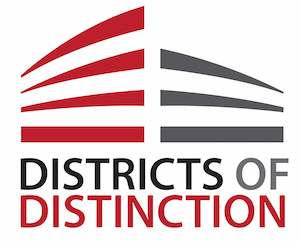
During school closures, staff members at Alabaster City Schools are still building relationships with at risk students who might not graduate through a credit recovery program and graduation counseling via school teletherapy sessions as well as multiple phone calls and text messages per week.
Before the pandemic, the Alabama district had risen the graduation rate from 89% to 98% and continued to maintain that high percentage through an initiative to increase graduation rates, which District Administration‘s Districts of Distinction program honored in 2016.
“This situation with COVID-19 has been challenging since we can’t see students face-to-face every day but we want to make sure that they will graduate and are able to reach out to staff members for help,” says Dorann Tanner, student services coordinator. “If a student doesn’t have strong Wi-Fi, then we will do a good old-fashioned phone call or text to make sure everything is okay.”
Maintaining a credit recovery program
Before the pandemic, students who missed school or were falling behind came to the district during the summer to complete assignments on an online credit recovery program. These students will still be able to access this program if schools remain closed since the district provided chromebooks for grades 3 through 12 when COVID-10 became imminent after a student survey.
Related: 3 districts that developed innovative programs targeting at-risk students
Related: How equity has overhauled grading in online learning

“We would love to have the kids back on campus, just because you cannot replicate that relationship online, but if we need to continue this stay at home plan, then our summer program will be offered remotely,” says Tanner.
For students without internet access, the district installed outdoor wireless access points that extends the Wi-Fi to school parking lots so students can connect to internet from the safety of their car.
Graduation counseling and additional support
The district’s graduation coach continues building relationships with at risk students during school closures on Google Classroom and a HIPPA-compliant teletherapy platform for one-on-one sessions.
And while the district hasn’t been able to use the district’s therapy dog named Warrior for support during the pandemic, the dog’s handler, a district counselor, keeps students updated on how Warrior is doing and sends some pictures of her playing with goats and chickens on her farm.
 “These students need a relationship to help them graduate, so we focus on building them,” says Tanner. “There’s no magic to it. If you have someone who cares and checks in on them, then there will be more change for success.”
“These students need a relationship to help them graduate, so we focus on building them,” says Tanner. “There’s no magic to it. If you have someone who cares and checks in on them, then there will be more change for success.”
For more coronavirus coverage, click here
To learn more about Districts of Distinction, click here







